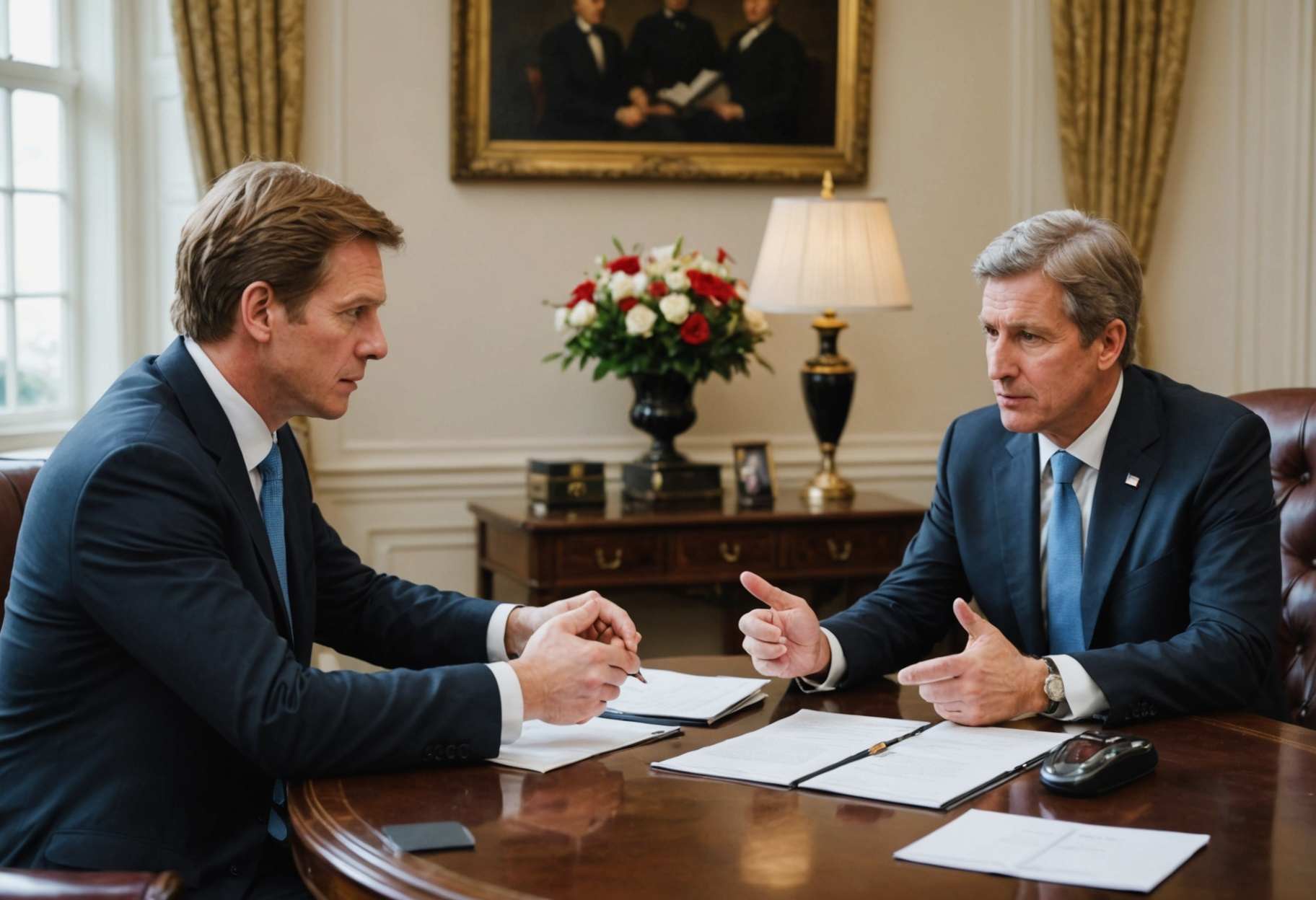Find the Standards of Viable Refereeing: Settling Debates with Strategy

Struggle is an innate part of human connections, yet how we handle and resolve these debates significantly influences the strength of our connections and results. Compelling peace promotion involves utilizing standards and methodologies that take into account the strategic, compassionate, and cooperative goal of conflicts. By considering and applying these standards, the two people and associations can really explore clashes and arrive at arrangements that benefit all included. How about we dive into the standards of powerful peace making and investigate the craft of settling debates with tact.
**Successful Communication:**
Open correspondence is the foundation of fruitful refereeing. This includes undivided attention, clear and conscious articulation, and a sincere work to appreciate the points of view and needs, everything being equal. By empowering straightforward discourse, people can uncover experiences, explain misguided judgments, and develop trust, which is fundamental for viable compromise.
**Understanding Different Perspectives:**
Valuing different viewpoints is essential in overseeing struggle. Every individual brings exceptional encounters, values, and convictions that illuminate their perspectives and interests. By cultivating compassion and endeavoring to appreciate others' perspectives, people can advance regard and establish a climate where various sentiments can be recognized and esteemed.
**Joint effort and Issue Solving:**
A cooperative way to deal with critical thinking is fundamental for powerful peace promotion. Rather than a success lose approach, gatherings ought to hold back nothing results that take care of the crucial requirements of all people included. This cooperative technique energizes conceptualizing, imaginative reasoning, and the investigation of elective arrangements, eventually prompting creative and commonly pleasing outcomes.
**Profound Intelligence:**
The capacity to appreciate people on a profound level is basic in peace making, as it includes both perceiving and dealing with one's feelings and grasping the sensations of others. By staying cool and mindful of close to home triggers, people can move toward clashes with improved sympathy and poise, making an ideal climate for goal.
**Center around Interests, Not Positions:**
To oversee struggle really, looking past superficial situations to the basic interests at play is fundamental. While positions are explicit requests or proposed arrangements, interests dig further into the key requirements, concerns, and inspirations that illuminate those positions. By recognizing and tending to these interests, people can settle on something worth agreeing on and foster clever fixes that fulfill everybody's requirements.
**Look for Intercession and Facilitation:**
In perplexing struggles, utilizing intervention or help by an unbiased outsider can be worthwhile. Go betweens assist with administering the contention interaction, guaranteeing decency and directing the elaborate gatherings toward a pleasing goal. Their expertise and objectivity can help with investigating alternate points of view, creating choices, and keeping up with valuable correspondence.
**Valuable Critical thinking Tools:**
Various critical thinking devices and methods can improve peace promotion. These incorporate conceptualizing, discussion, dynamic critical thinking, and agreement building techniques. Using these strategies cultivates joint effort and advancement, underlining the significance of settling on some shared interest and creating manageable arrangements.
**Gain and Develop from Conflicts:**
Clashes hold potential for learning and self-improvement. Pondering past debates and surveying their results permits people and associations to improve their peace making abilities. By viewing clashes as any open doors for development, people can refine their correspondence, exchange, and critical thinking abilities, eventually reinforcing their capacity to really oversee future debates.
In synopsis, powerful refereeing is essential for supporting solid connections and accomplishing great outcomes. By taking on standards like powerful correspondence, perceiving different points of view, advancing cooperation, creating the capacity to appreciate anyone on a deeper level, focusing on interests over positions, taking into account intercession, and applying productive critical thinking devices, people and associations can deal with clashes carefully and arrive at fulfilling goals. At the point when overseen well, struggle can go about as an impetus for development, advancement, and the improvement of more profound connections grounded in understanding and regard.
**Successful Communication:**
Open correspondence is the foundation of fruitful refereeing. This includes undivided attention, clear and conscious articulation, and a sincere work to appreciate the points of view and needs, everything being equal. By empowering straightforward discourse, people can uncover experiences, explain misguided judgments, and develop trust, which is fundamental for viable compromise.
**Understanding Different Perspectives:**
Valuing different viewpoints is essential in overseeing struggle. Every individual brings exceptional encounters, values, and convictions that illuminate their perspectives and interests. By cultivating compassion and endeavoring to appreciate others' perspectives, people can advance regard and establish a climate where various sentiments can be recognized and esteemed.
**Joint effort and Issue Solving:**
A cooperative way to deal with critical thinking is fundamental for powerful peace promotion. Rather than a success lose approach, gatherings ought to hold back nothing results that take care of the crucial requirements of all people included. This cooperative technique energizes conceptualizing, imaginative reasoning, and the investigation of elective arrangements, eventually prompting creative and commonly pleasing outcomes.
**Profound Intelligence:**
The capacity to appreciate people on a profound level is basic in peace making, as it includes both perceiving and dealing with one's feelings and grasping the sensations of others. By staying cool and mindful of close to home triggers, people can move toward clashes with improved sympathy and poise, making an ideal climate for goal.
**Center around Interests, Not Positions:**
To oversee struggle really, looking past superficial situations to the basic interests at play is fundamental. While positions are explicit requests or proposed arrangements, interests dig further into the key requirements, concerns, and inspirations that illuminate those positions. By recognizing and tending to these interests, people can settle on something worth agreeing on and foster clever fixes that fulfill everybody's requirements.
**Look for Intercession and Facilitation:**
In perplexing struggles, utilizing intervention or help by an unbiased outsider can be worthwhile. Go betweens assist with administering the contention interaction, guaranteeing decency and directing the elaborate gatherings toward a pleasing goal. Their expertise and objectivity can help with investigating alternate points of view, creating choices, and keeping up with valuable correspondence.
**Valuable Critical thinking Tools:**
Various critical thinking devices and methods can improve peace promotion. These incorporate conceptualizing, discussion, dynamic critical thinking, and agreement building techniques. Using these strategies cultivates joint effort and advancement, underlining the significance of settling on some shared interest and creating manageable arrangements.
**Gain and Develop from Conflicts:**
Clashes hold potential for learning and self-improvement. Pondering past debates and surveying their results permits people and associations to improve their peace making abilities. By viewing clashes as any open doors for development, people can refine their correspondence, exchange, and critical thinking abilities, eventually reinforcing their capacity to really oversee future debates.
In synopsis, powerful refereeing is essential for supporting solid connections and accomplishing great outcomes. By taking on standards like powerful correspondence, perceiving different points of view, advancing cooperation, creating the capacity to appreciate anyone on a deeper level, focusing on interests over positions, taking into account intercession, and applying productive critical thinking devices, people and associations can deal with clashes carefully and arrive at fulfilling goals. At the point when overseen well, struggle can go about as an impetus for development, advancement, and the improvement of more profound connections grounded in understanding and regard.
LATEST POSTS
- 1
 Manual for Shrewd Home Lighting Framework: Lights up Your Space
Manual for Shrewd Home Lighting Framework: Lights up Your Space - 2
 The Specialty of Cleaning up: Change Your Space and Psyche
The Specialty of Cleaning up: Change Your Space and Psyche - 3
 Melodic Event: A Survey of \Energies and Exhibitions Assessed\ Live concert
Melodic Event: A Survey of \Energies and Exhibitions Assessed\ Live concert - 4
 Do-It-Yourself Home Style on a Careful spending plan: Imaginative Thoughts and Tasks
Do-It-Yourself Home Style on a Careful spending plan: Imaginative Thoughts and Tasks - 5
 Manual for Tracking down the Nearby Business sectors and Marketplaces
Manual for Tracking down the Nearby Business sectors and Marketplaces
Share this article
 7 Well known Vacation spots In The US
7 Well known Vacation spots In The US Viable Correspondence: Building Solid Connections
Viable Correspondence: Building Solid Connections The Effect of Online Organizations on Society: Beating the Difficulties
The Effect of Online Organizations on Society: Beating the Difficulties Accomplishing Balance between fun and serious activities: Procedures for a Better Life
Accomplishing Balance between fun and serious activities: Procedures for a Better Life Instructions to Pick the Right Dental Embed Trained professional: An Exhaustive Aide
Instructions to Pick the Right Dental Embed Trained professional: An Exhaustive Aide Figure out How to Stay away from Normal Handshaking Missteps
Figure out How to Stay away from Normal Handshaking Missteps 6 Top Computer game Control center
6 Top Computer game Control center Financial plan Cordial Home Redesigns That Add Worth
Financial plan Cordial Home Redesigns That Add Worth Step by step instructions to Contrast Lab Jewels and Regular Ones
Step by step instructions to Contrast Lab Jewels and Regular Ones













